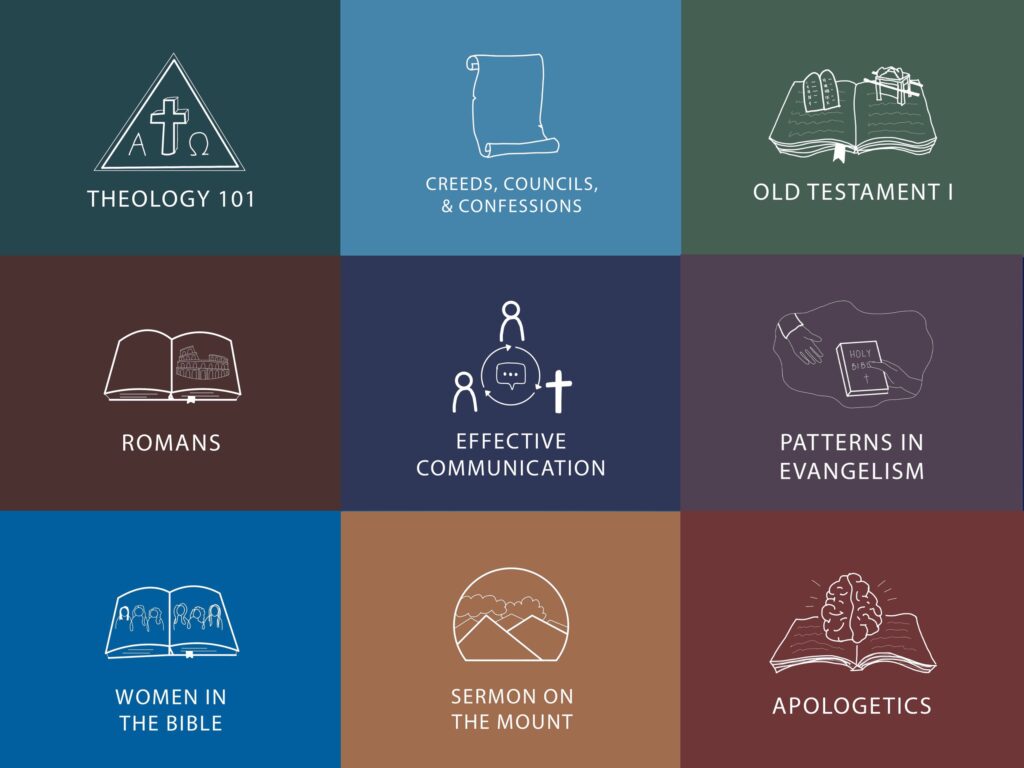Course Descriptions
Listing of All Current and Previous Anchor Course Details:
Click on a course link to jump to its description, previous syllabi, and sample lectures (when available).
- Bible Courses
- Bible 101 – Biblical Study and Interpretation (3 credits)
- Bible 110 – Old Testament I: Historical Literature (3 credits)
- Bible 111 – Old Testament II: Poetry and Prophecy (3 credits)
- Bible 120 – New Testament I: Gospels and Acts (3 credits)
- Bible 121 – New Testament II: The Epistles and Revelation (3 credits)
- Bible 200 – The World Behind the Text: Old Testament (1 credit)
- Bible 201 – The World Behind the Text: New Testament (1 credit)
- Bible 202 – Women in the Bible (1 credit)
- Bible 207 – The Seven Churches of Revelation (1 credit)
- Bible 215 – Psalms (3 credits)
- Bible 257 – Sermon on the Mount (1 credit)
- Bible 216 – Romans (3 credits)
- Bible 250 – Genesis (3 Credits)
- Bible 313 – The Book of Hebrews (3 credits)
- Theology Courses
- Ministry Courses
- Ministry 101 – Calling & Purpose (3 credits)
- Ministry 110 – Christian Life & Discipline (3 credits)
- Ministry 201 – Patterns in Evangelism (1 credit)
- Ministry 210 – Ministry in the Local Church (3 credits)
- Ministry 301 – The Christian Family (3 credits)
- Ministry 310 – Preaching and Teaching Methods (3 credits)
- General Studies
- Comm 110 – Effective Communication (3 credits)
- Counseling 110 – Intro to Human Relationships and Christian Counseling (3 credits)
- Math 110 – Critical Thinking, Finance, Logic, and Probability (3 credits)
- Apologetics 201 – Christian Apologetics (3 credits)
- Greek 101 – Biblical Greek I (3 credits)
- Greek 110 – Biblical Greek II (3 credits)
- Hebrew 101 – Introduction to Biblical Hebrew (3 credits)
- History 240 – Intertestamental History: The World Just Before Jesus (3 credits)
- History 276 – American Church History (1 Credit)
- History 277 – Hymns of the Faith (1 Credit)
- Bible 210 – Biblical Archaeology (3 credits)
Bible Courses
Bible 101 – Biblical Study and Interpretation (3 credits)
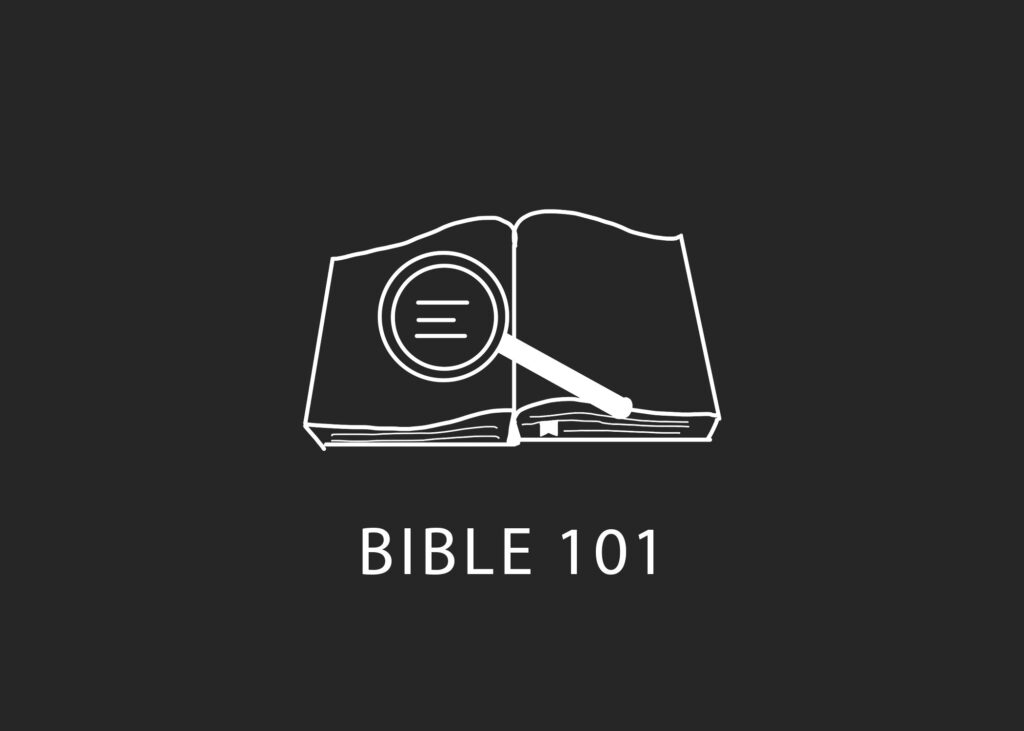
This course is an introduction to the best practice methods for biblical study and interpretation. This includes a focus on the historical, cultural, literary, and geographical context of a given passage. The student will learn to apply sound exegetical methods in relation to topics such as textual criticism, genre issues, and contextualization. Introduction to Bible study tools and Bible software will also be covered. The course will be structured with weekly readings, discussion boards, and quizzes. Students will also select a hermeneutically challenging passage and perform written assignments throughout the semester that will build towards a final exegetical paper.
Bible 110 – Old Testament I: Historical Literature (3 credits)
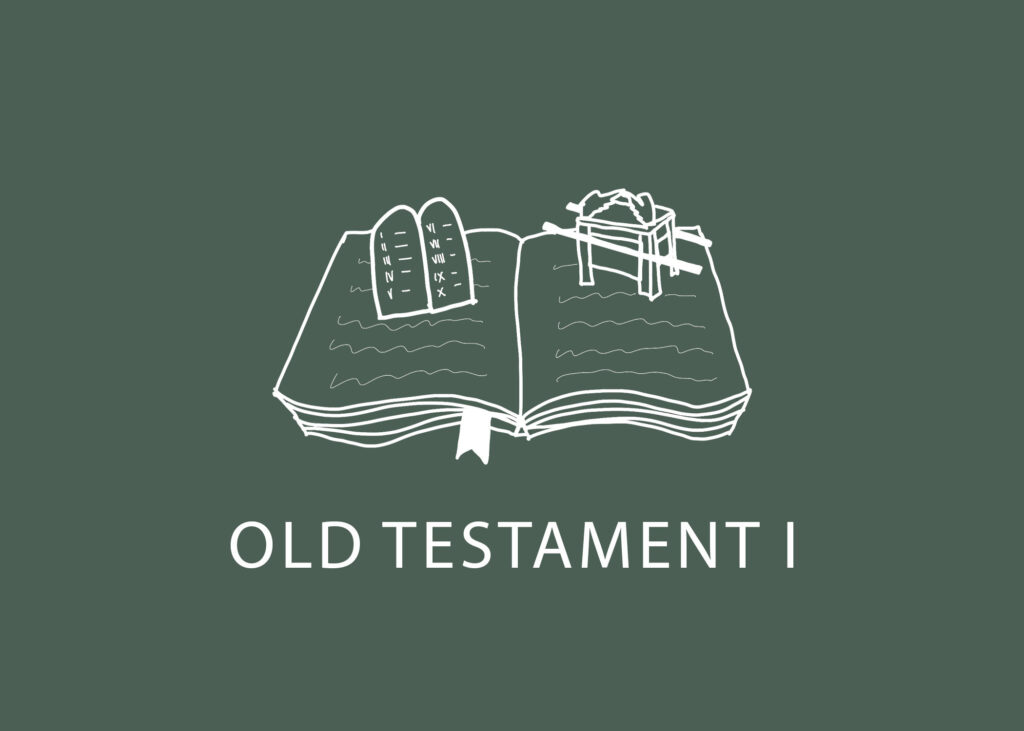
This course surveys the narrative literature of the Old Testament, stretching from Genesis to Esther. Students will not only engage with the historical plot of the Old Testament, but dive into the theological themes that weave throughout these books. The class will also emphasize motifs of Christ that find their seeds in the Old Testament, coming to fruition in the New. Students will learn how applicable the Old Testament is to their current ministry setting and find avenues of application for their life. Student learning will be evaluated based on weekly quizzes, a midterm and final exam, and a final exegetical paper.
Bible 111 – Old Testament II: Poetry and Prophecy (3 credits)
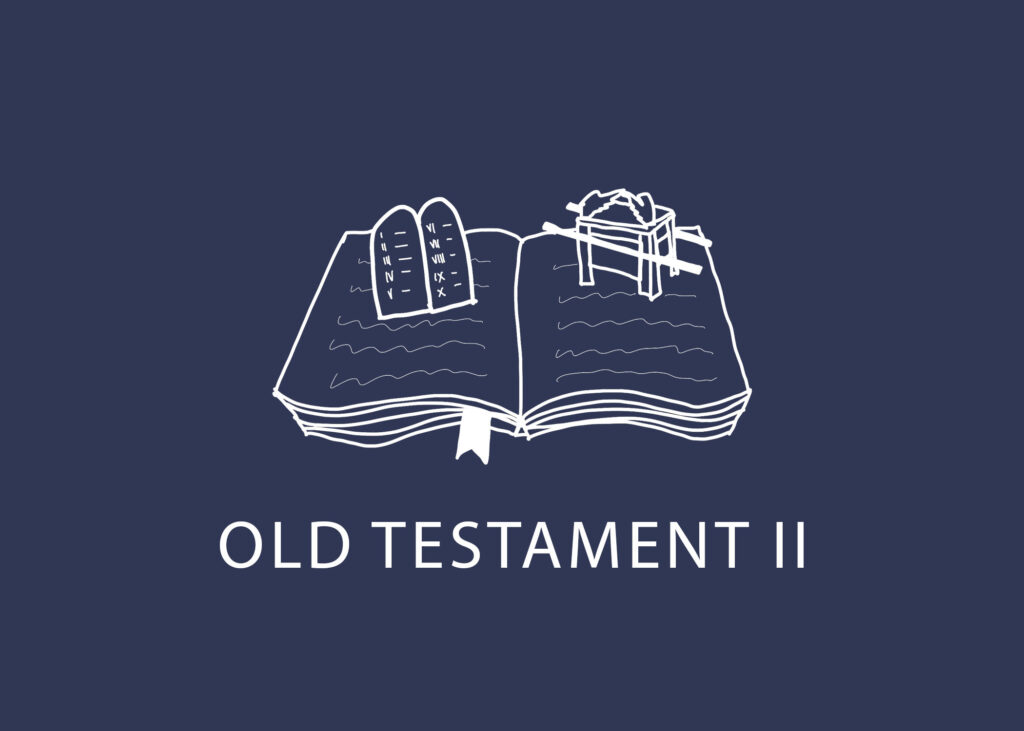
This course surveys the poetic and prophetic literature of the Old Testament, stretching from Job to Malachi. Students will not only engage with the literary structure of Old Testament poetry and prophecy but also explore the theological themes in each book. The class will also emphasize motifs of Christ that find their seeds in the Old Testament, coming to fruition in the New. Students will learn how applicable the Old Testament is to their current ministry setting and find avenues of application for their life. Student learning will be evaluated based on weekly quizzes, a midterm and final exam, and a final exegetical paper.
Bible 120 – New Testament I: Gospels and Acts (3 credits)
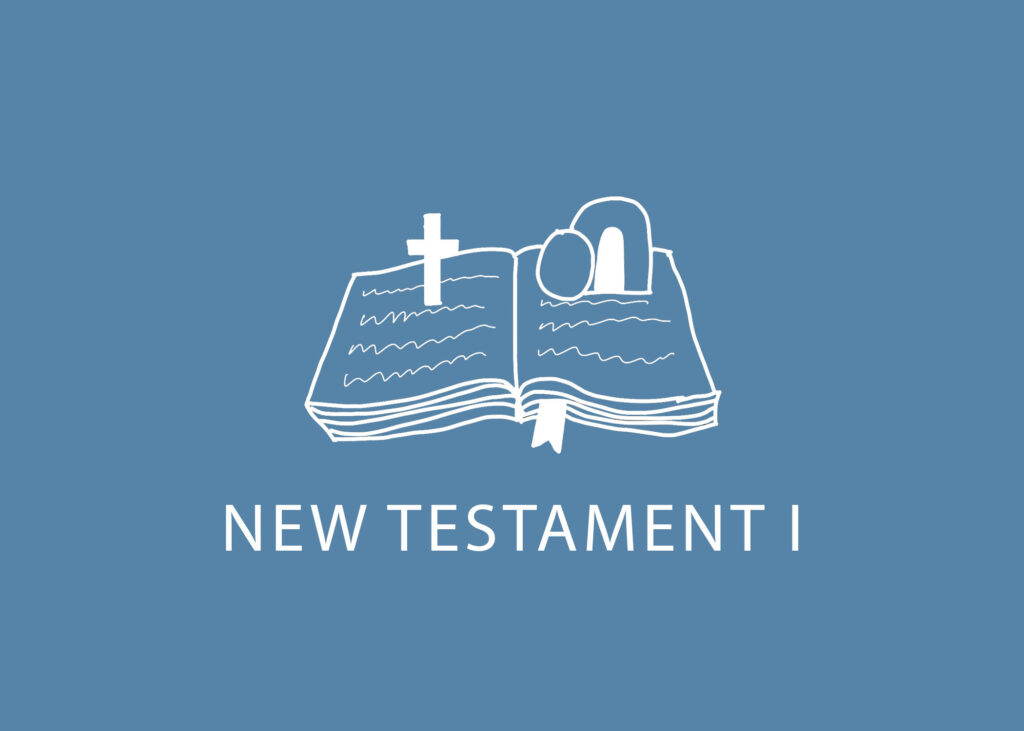
This course will study through the books of Matthew, Mark, Luke, John, and Acts to provide each student with an in-depth knowledge of the historical, theological, and practical significance of this portion of the New Testament text. Students will learn how to interpret and apply both the didactic and narrative contained in these books in both their personal lives and in practical ministry settings. There will be a significant focus on chapter-by-chapter study, discussion, and application throughout the semester. Student learning will be evaluated based on weekly quizzes, a midterm and final exam, and a final exegetical paper.
Bible 121 – New Testament II: The Epistles and Revelation (3 credits)
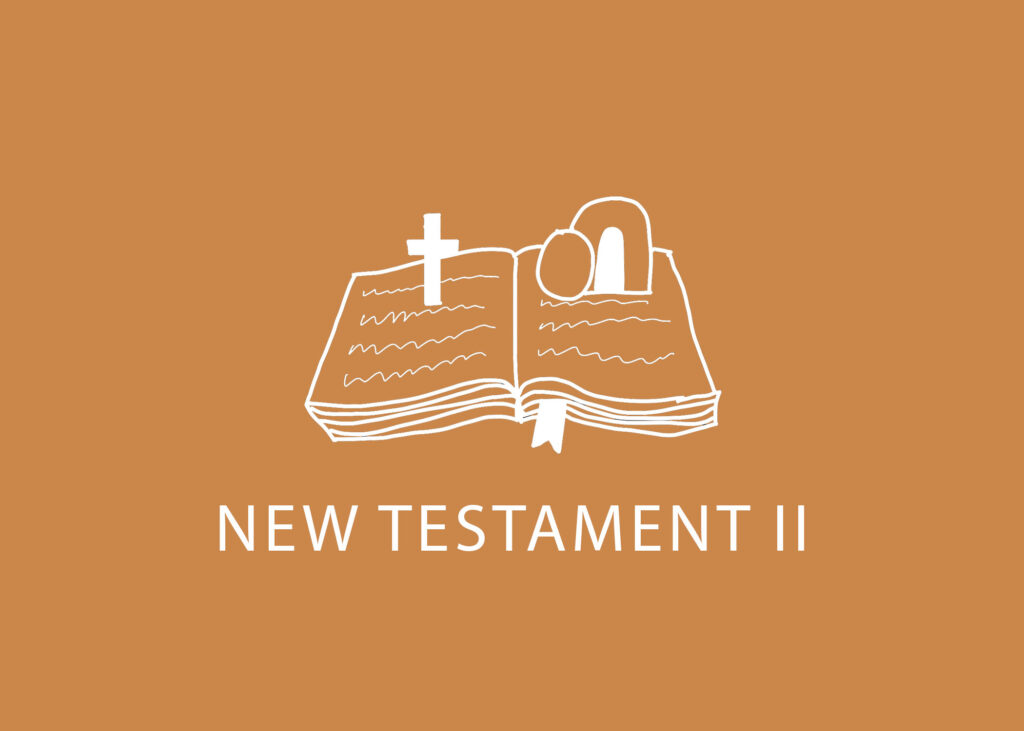
This course, which covers the books of Romans through Revelation, requires an in-depth reading of the New Testament text, along with textbook readings explaining the historical and theological significance of these biblical texts. There will also be an emphasis on the lives and ministries of the apostolic writers. Students will gain an intimate familiarity with the epistles and learn to apply these truths to their ministry callings and settings. The course will be structured with weekly lectures and personal discipleship. Evaluation will be gained from weekly quizzes and homework, two written papers, a midterm, and a final exam.
Bible 200 – The World Behind the Text: Old Testament (1 credit)
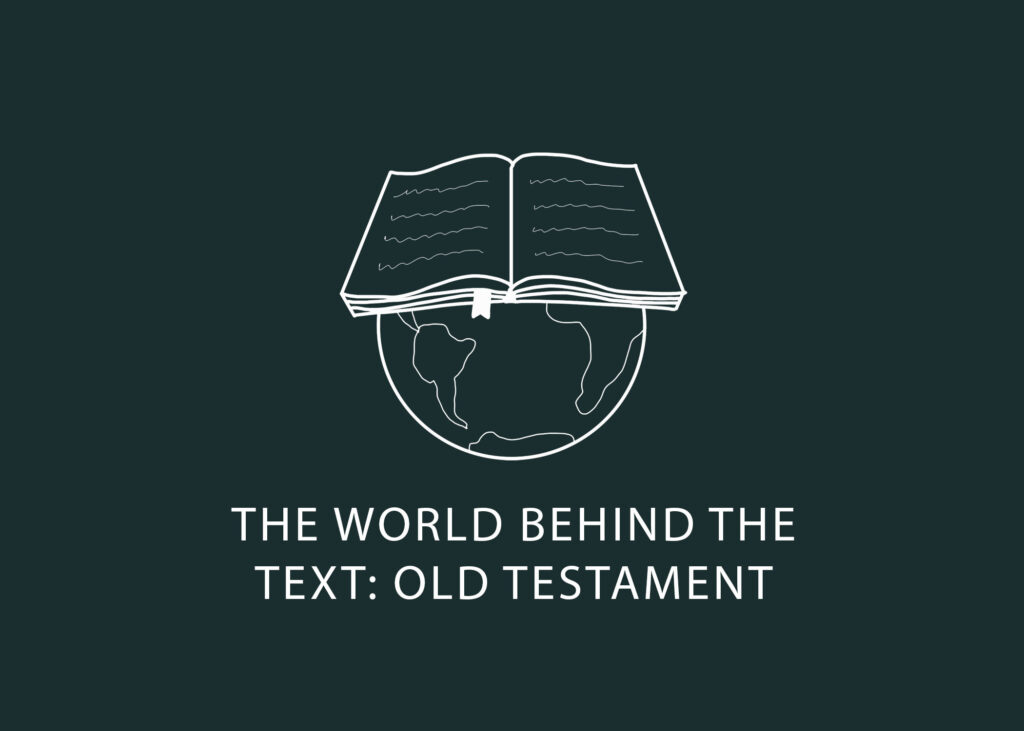
The World Behind the Text: Old Testament is an 8-week course exploring the historical, cultural, and political landscapes of the Ancient Near East that shaped the Old Testament. This course examines key kingdoms such as Egypt, Assyria, Babylon, and Persia, analyzing their influence on Israel’s development, identity, and literature through archaeological findings and historical sources. Students will gain a deeper understanding of the Old Testament’s historical, social, and political context, enhancing their interpretation of biblical texts. Student learning will be evaluated based on weekly quizzes, a final exam, and a final project, completed in weekly segments, which demonstrates some familiarity with the culture or time of the kingdom you choose.
Bible 201 – The World Behind the Text: New Testament (1 credit)
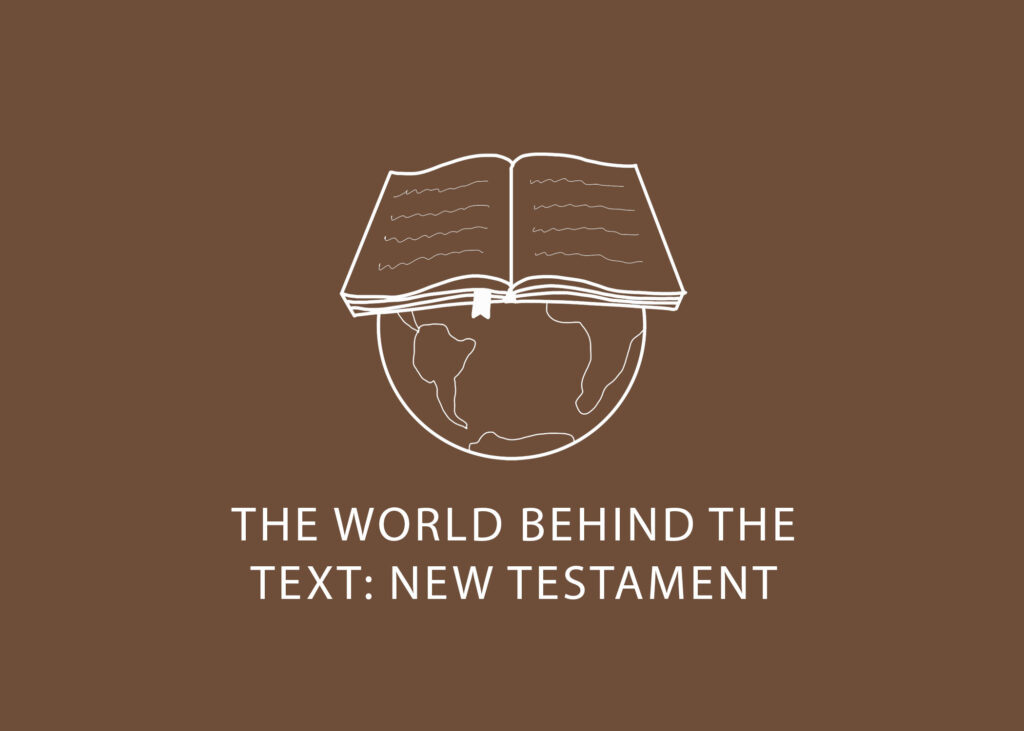
The World Behind the Text: New Testament is a 7-week course that investigates Hellenistic influences as well as the historical, cultural, and political dynamics of the Roman Empire during the Intertestamental and New Testament eras. This course will examine the impact of Greco-Roman religion, politics, and social structures on Jewish society and religion as well as on early Christian communities via archaeological evidence and historical sources. Students will develop a richer understanding of the New Testament’s background, enhancing their interpretation of the Gospels, Acts, and the Epistles within their first-century context. Student learning will be evaluated based on weekly quizzes, a final exam, and a final project, completed in weekly segments, which demonstrates some familiarity with the culture or time of the kingdom you choose.
Bible 202 – Women in the Bible (1 credit)
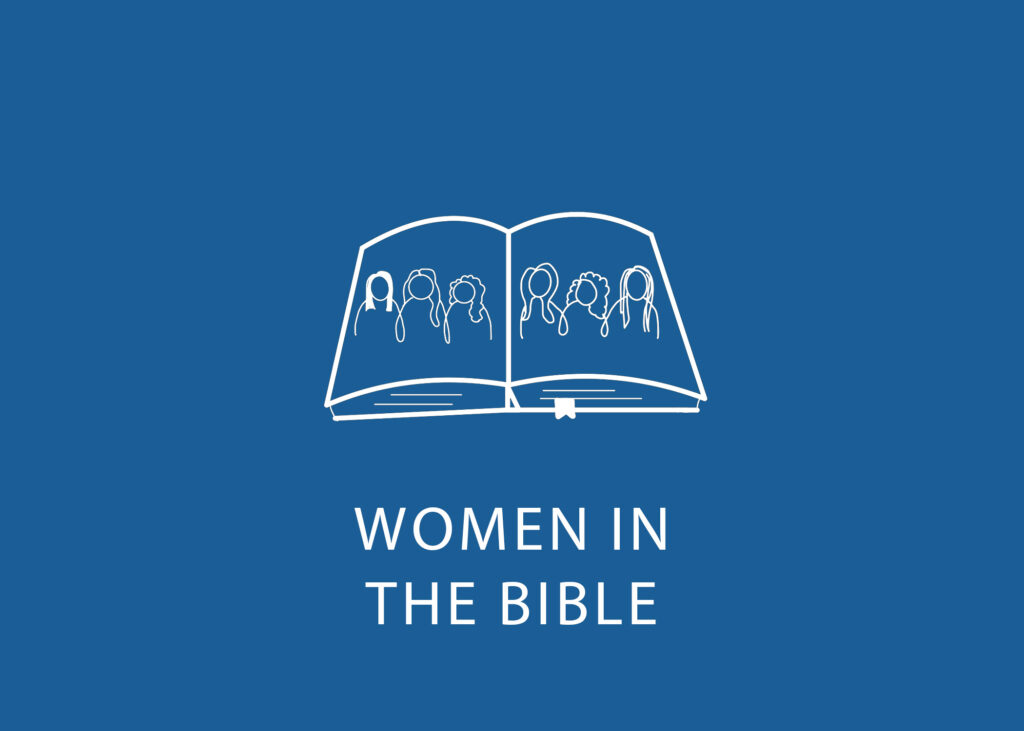
This 7-week course offers a survey of the many women God has used to shape redemptive history. By reading their stories and tracing biblical teaching on women’s lives and service, students will discover timeless lessons in faith, courage, and discipleship that speak to the church today. Each week pairs biographical snapshots with theological reflection, allowing students to identify the Scriptural patterns that continue to shape service to Christ and His Church today. Students will engage through weekly lectures, assigned readings, and class discussion. Assignments will include weekly quizzes, an interview-and-reflection project, and a final exam.
Bible 207 – The Seven Churches of Revelation (1 credit)
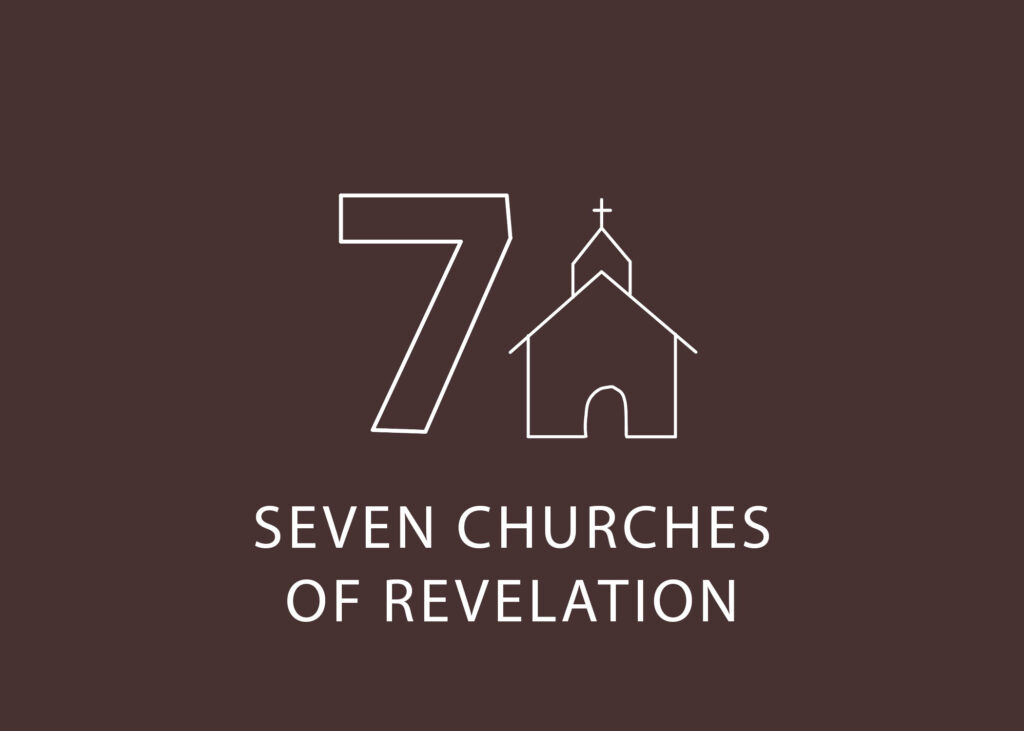
This course is a closeup look at the letters to the seven churches in Revelation chapters 2 & 3. The class will dive into each letter looking at the biblical significance of each message alongside the history, geography, and culture of each city. Students will learn how the situation of each church can be applied to modern churches and individuals. Student learning will be evaluated based on weekly quizzes, a final exam, and a display board project that will be completed in weekly segments.
Bible 215 – Psalms (3 credits)
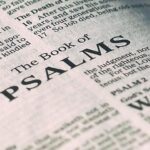
This course involves an in-depth study of the book of Psalms. Topics include: the structure of the Psalter, collections of Psalms within the Psalter, the theology of the Psalter (including Messianic connections), the use of Psalms in worship from ancient times to today, the use of the Psalms in personal devotional practices from ancient times to today, the exegesis of select psalms, and the practical application of select psalms to our lives. These topics will be covered through lectures with exegetical, theological, and practical content including the use and teaching of the Psalms in Sunday school, children’s church, and homeschooling contexts. Students will read the entire Psalter over the course of the semester, as well as completing six projects related to the use of the Psalms and six essay assignments related to the theology and content of the Psalms. There will also be quizzes as well as a midterm and a final exam.
Bible 257 – Sermon on the Mount (1 credit)

This course will equip students with a basic introduction to understanding and interpreting Jesus’s Sermon on the Mount, found in Matthew 5-7. The class will discuss various hermeneutical perspectives on the Sermon, along with its structure, key themes, and challenging interpretive issues. In addition to a method for interpreting the Sermon, students will see how the Sermon speaks into current ethical issues and provides a guide for Christian discipleship and growth. Student learning will be evaluated based on weekly quizzes from the assigned reading and class discussion, a Scripture memory project, and a final exam or paper.
Bible 216 – Romans (3 credits)

This course covers an in-depth study of the book of Romans including its theological significance and practical application to our lives. The course is structured with exegetical lectures covering each chapter in Romans along with several further theological lectures on topics such as justification, God’s sovereignty, and biblical covenants. Over the course of the semester, students will complete 6 homework assignments such as a Romans outline, word study, or Old Testament quotes worksheet. Students will also complete 6 essay assignments answering questions such as “What about those who have never heard the gospel?” and “What does it look like to live a genuine Christian life?” There will also be quizzes in each class period and a midterm and final exam.
Bible 250 – Genesis (3 Credits)

This course covers an in-depth study of the book of Genesis including its theological significance and practical application to our lives. The course is structured with exegetical lectures covering portions of Genesis along with several further theological lectures tracing the themes of Genesis throughout the remainder of Scripture. Emphasis will be placed on how to understand and teach the message of Genesis today. Over the course of the semester, students will complete 9 homework assignments such as Comparing Creation Stories in the Bible. Students will also complete 5 essay assignments answering questions such as how does knowledge of the Ancient Near East impact our understanding of Genesis? There will also be quizzes/discussions in each class period and three exams.
Bible 313 – The Book of Hebrews (3 credits)
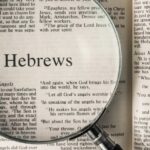
An exposition of the epistle of Hebrews covering the background, structure, biblical and theological content, and the development of the argument of the book. Attention will be given to practical matters of exegesis (outline, diagramming, word study, cross-references, etc.) and synthesis of the content of each section. Students will gain a greater understanding of the doctrines of Christ and salvation as they study how the book of Hebrews weaves together the overall storyline of the Bible. Students will learn through weekly lectures, class discussions, homework, and quizzes, along with several exams.
Theology Courses
Theology 101 – Christian Theology I (3 credits)
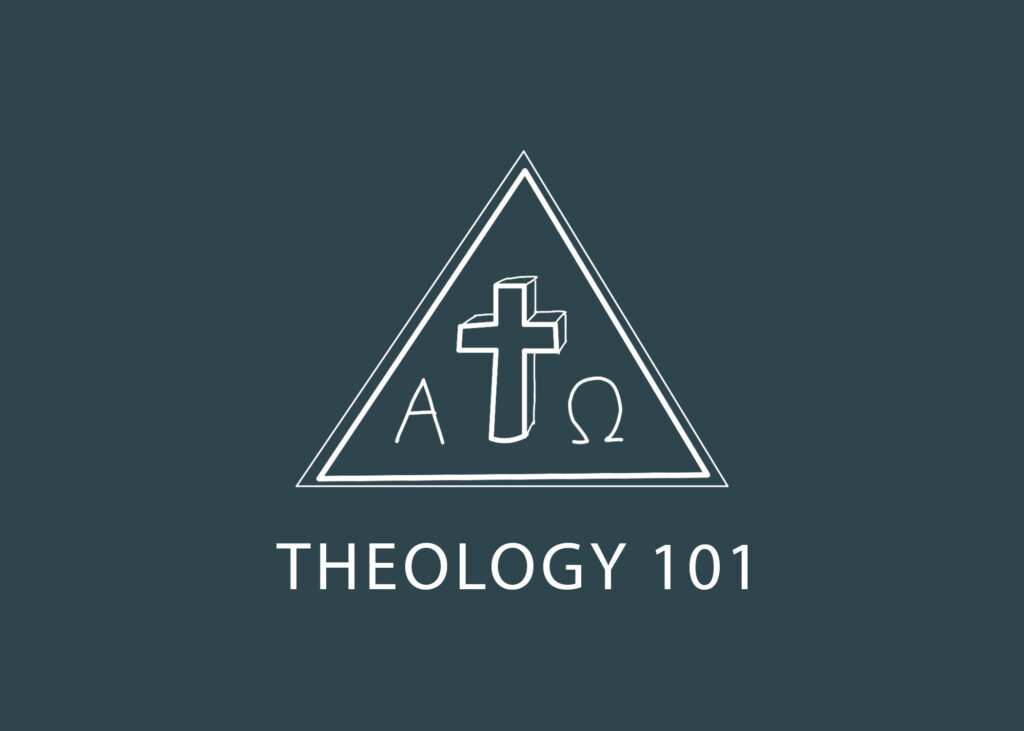
This course will cover 3 main topics in relation to Christian Theology: The
Doctrine of the Word of God, The Doctrine of God, and The Doctrines of Christ and the Holy Spirit. Class time will consist of lectures and discussions on these various topics. Evaluation will be based on completion of the assigned reading material, chapter review questions, quizzes, a mid-term examination, a final examination, and a final project (6-8 page paper on aspects of a personal statement of faith).
Theology 110 – Christian Theology II (3 credits)
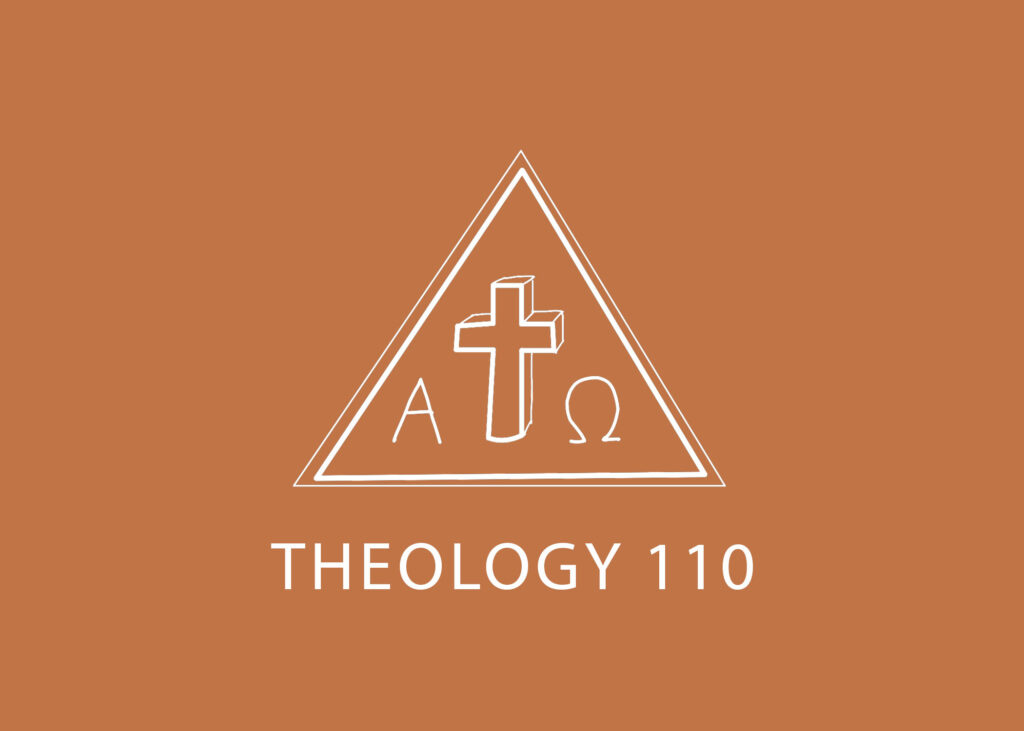
This course will cover 4 main topics in relation to Christian Theology: The Doctrine of Man in the Image of God, The Doctrine of the Application of Redemption, The Doctrine of the Church, and The Doctrine of the Future. Class time will consist of lectures on these various topics. Evaluation will be based on completion of the assigned reading material, chapter review questions, quizzes, a mid-term examination, a final examination, and a final project (6-8 page paper on aspects of a personal statement of faith).
Theology 210 – Creeds, Councils, and Confessions (3 credits)

This course follows the church’s confession of Christ “to the ends of the earth” as foretold in the book of Acts. Beginning with early church fathers, weaving through church councils, following historical-theological movements, and ending with modern evangelical affirmations, each section of this course is paired with a primary-source theologian. Week one introduces a “Historical Catechism” that students memorize in segments. Weekly reading guides steer engagement with Athanasius, Augustine, Anselm, Luther, Calvin, Edwards, and Machen. Coursework consists of guided readings, quizzes, and a cumulative final exam. By the end, students will be able to articulate how creeds can safeguard the gospel, how councils have shaped theological debates, and how confessions can foster unity within Christ’s church—all with an eye toward faithful ministry today.
Ministry Courses
Ministry 101 – Calling & Purpose (3 credits)
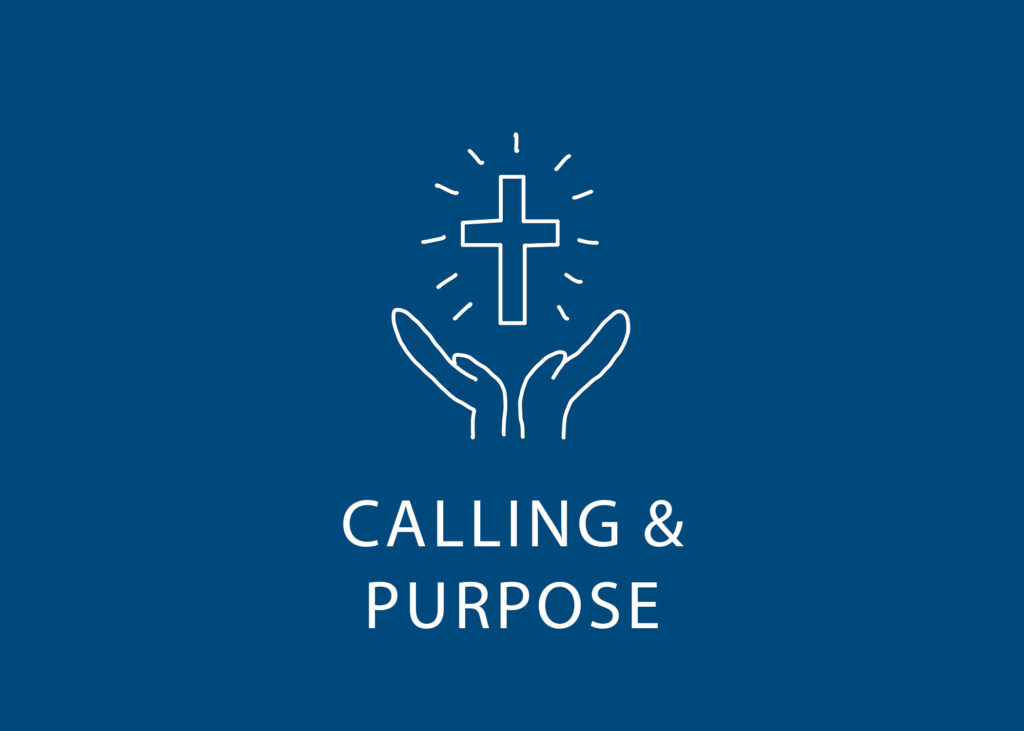
This course covers 4 main topics in relation to Christian ministry: New Testament ministry, ministry calling and purpose, biographical examples, and personal ministry insight. The course will be structured with lectures and discussions on these topics with an emphasis on personal application. The class time will also feature interaction with guest missionaries, local pastors, and others involved in full-time Christian ministry. Evaluation will be based on four written exercises (3-5 page papers) and a completion of the assigned reading material. The papers will be on the following topics: the training of the twelve disciples, surrender and calling in ministry, and two papers on spiritual lessons from biographical examples.
Ministry 110 – Christian Life & Discipline (3 credits)
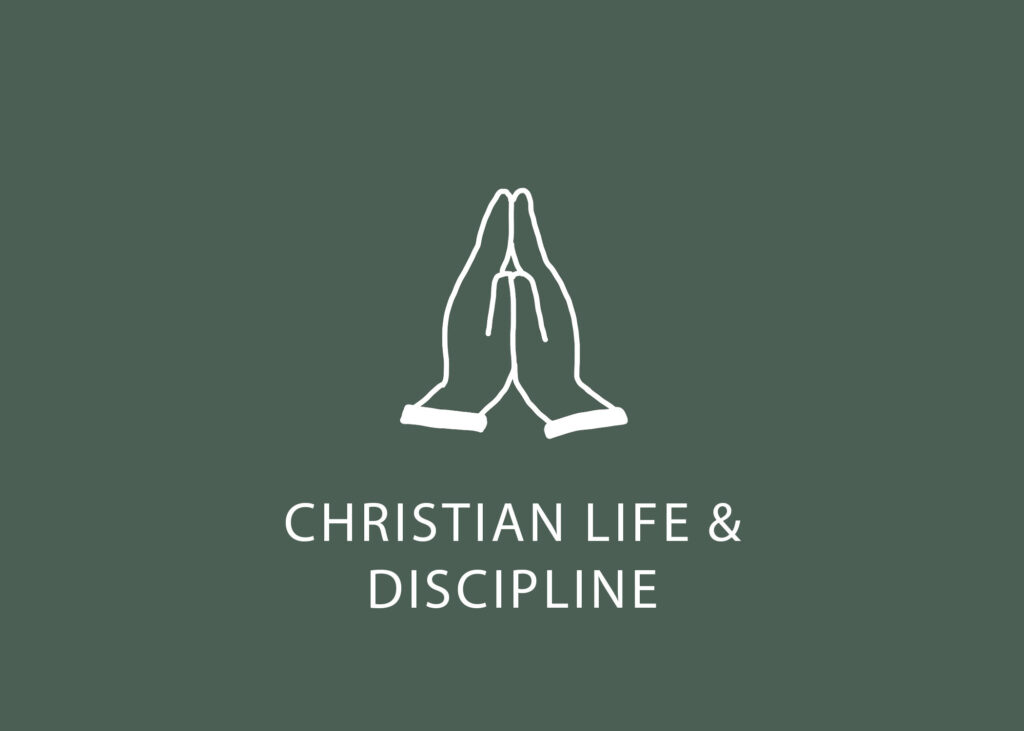
This course will cover seven main areas of Christian discipline: Scripture, prayer, fellowship, evangelism, worship, Christian service, and stewardship. The course will be structured with lectures and discussions on these topics with an emphasis on personal application. The class time will also feature interactions with experienced Christians sharing from their life and walk with Christ. Evaluation will be based on four written exercises (4-6 page papers) and completion of the assigned reading material. The papers will be on the following topics: biblical lessons from the book of Titus, the Christian life and disciplines, and two papers on spiritual lessons from biographical examples.
Ministry 201 – Patterns in Evangelism (1 credit)

This 7-week course surveys four major “patterns” by which God advances the gospel: (1) personal witness and discipleship, (2) evangelism teams, (3) seasons of revival, and (4) taking new territory. Biblical examples, historical case studies, and contemporary insights highlight the unique goals, tools, and spiritual disciplines that make each pattern effective. Particular emphasis will be given to the local church as the engine for evangelism and the place for lasting discipleship. Students will learn through weekly lectures, directed readings, class discussion, and hands-on practice refining their personal testimony and gospel presentation. Assignments will include weekly quizzes, assigned readings, experience with personal witnessing in a practical setting, and a final exam.
Ministry 210 – Ministry in the Local Church (3 credits)
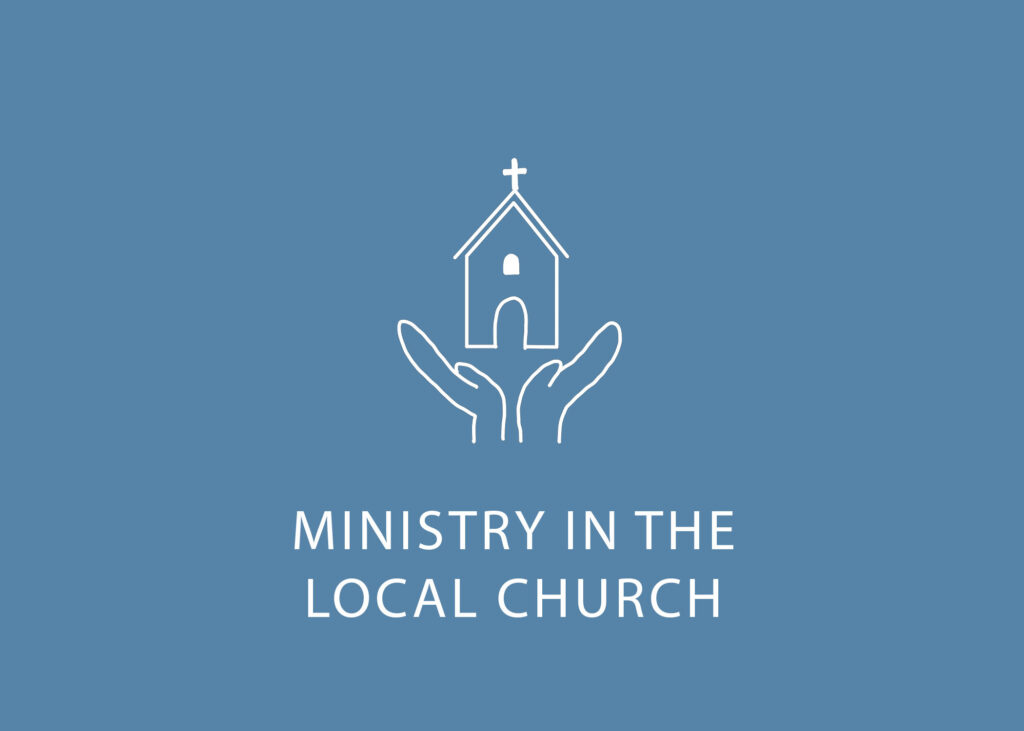
This course looks at the place of everyday Christians in the body of Christ, highlighting roles of service in the local church. The class will have four main sources of study:
1. Biblical descriptions of the local church from Acts and the epistles.
2. Spiritual gifts and how they are used in the local church.
3. Christian literature/examples of people who have served in the church.
4. Visits from everyday Christians who have served in the church.
Student learning will be evaluated based on four response papers (3-5 pages each). The papers will be on the following topics: biblical overview of the local church, personal practice of spiritual gifts, ministry in your local church, and an interview of a local church ministry-minded Christian.
Ministry 301 – The Christian Family (3 credits)
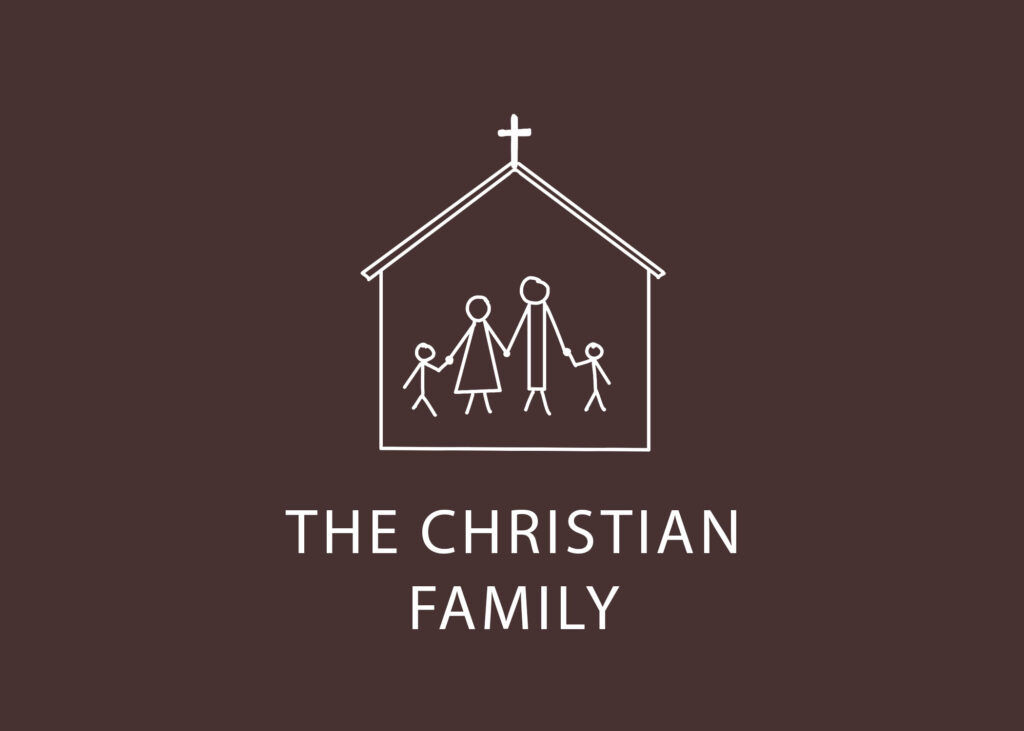
This course covers four main areas of the Christian family: marriage, gender/sexuality, parenting, and vocation. The course is structured with lectures and discussions on these topics with an emphasis on personal application. Lectures will focus on biblical theology, church history, and the opportunities for ministry within contemporary culture. Readings are aimed at showing how each area of the Christian family contributes to the ministry of the gospel and the glory of Christ. Students will also interview Christian families who are seeking to sanctify their family for the sake of ministry. Evaluation will be based on weekly readings and quizzes, four vision papers (2-3 pages, one for each area), a practical summary of the class interviews, and a group discussion as a final exam.
Ministry 310 – Preaching and Teaching Methods (3 credits)
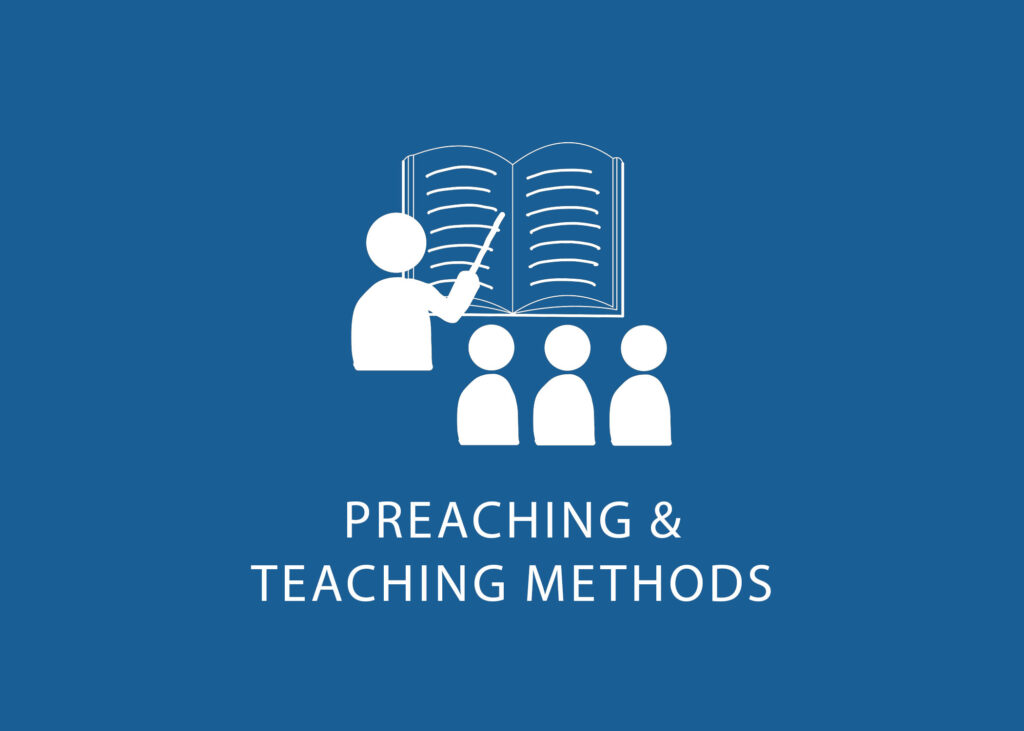
This course is designed to equip students to structure and prepare messages from biblical passages. Students will learn a biblical theology of preaching/teaching, proper methodologies of preaching and teaching, as well as how to analyze biblical texts, formulate a central idea statement from the text, and explain and support the central idea with appropriate applications in a message or lesson. Students will prepare and deliver sermons/lessons in class to the instructor and to classmates. This class will also cover such topics as planning, preaching and teaching for evangelism and discipleship, and teaching Bible stories to children.
General Studies
Comm 110 – Effective Communication (3 credits)
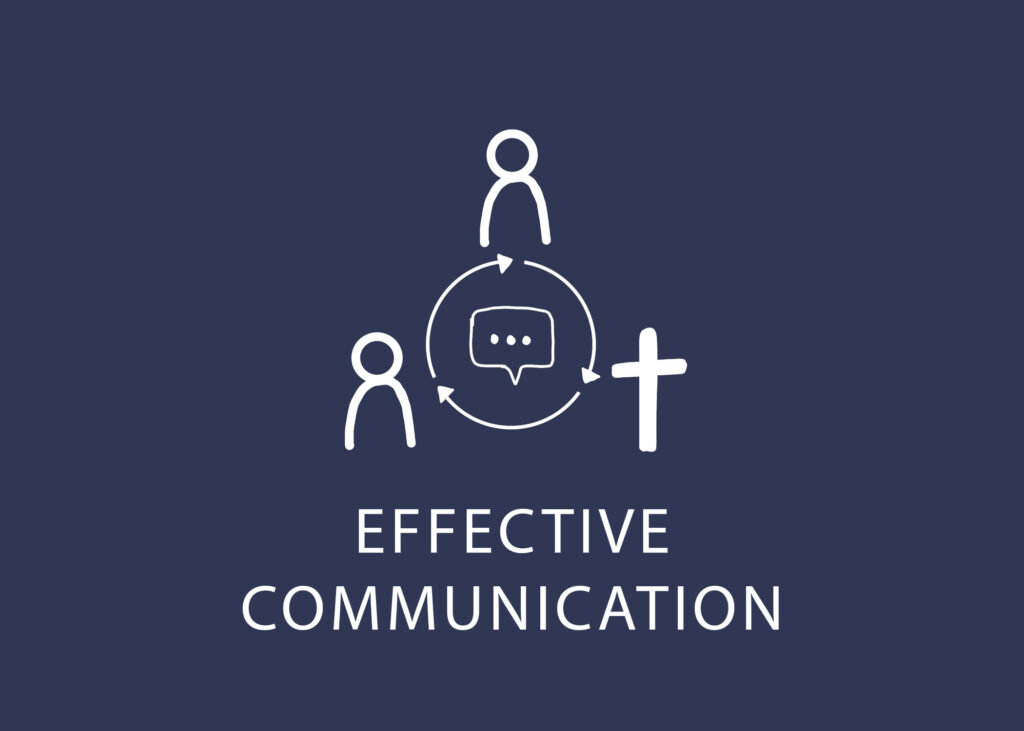
This course is designed to equip students to effectively communicate ideas and information, particularly regarding articulating their faith. It will provide opportunities for enhancing writing and speaking skills appropriate to purpose, situation, and audience. Students will develop logical argumentation skills for creating speeches and essays with clarity. They will support written and spoken communication with information which is used effectively and ethically. The course will be structured with weekly lectures, discussions and the opportunity for personal discipleship. Evaluation will take place via class assignments which include: three oral presentations (including a personal testimony), two outlines, and two papers. Students will read and analyze portions of the Bible with a particular emphasis on communication and people whom God empowered to spread His Good News. Course materials include portions of the Bible, two books, and several videos.
Counseling 110 – Intro to Human Relationships and Christian Counseling (3 credits)
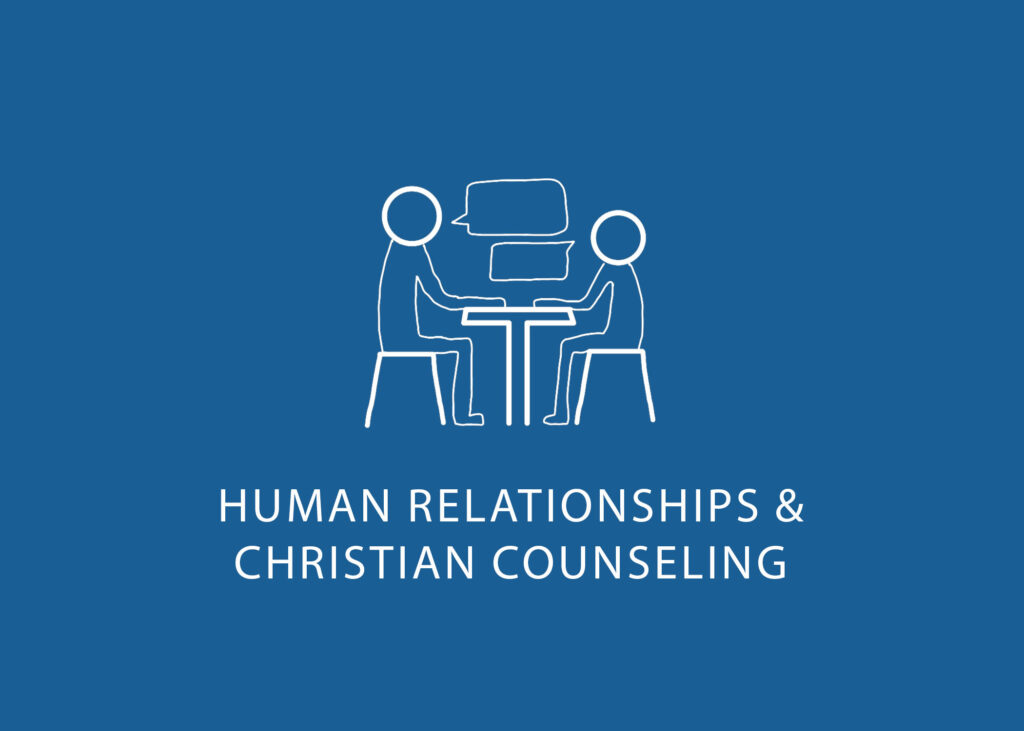
This course is an introduction to human relationships and Christian counseling. It begins with a Biblical search of who God is, who we are in Christ, and how we are to understand ourselves and others. We will investigate what the Bible teaches about how we are to be with others and how we are to encourage ourselves and others to grow in virtue through relationships and trials. Topics will include: conflict resolution, extending forgiveness, and pursuing holiness. Portions of the Bible will be read throughout this course, as well as two books and several handouts. Students will gain an understanding of how to think about problems as opportunities to grow more Christlike in character. The course will be structured with weekly lectures and personal discipleship. Evaluation will be gained from weekly homework, two written papers or oral presentations, and a final exam.
Math 110 – Critical Thinking, Finance, Logic, and Probability (3 credits)

Though mathematics may appear unrelated to biblical studies or Christian ministry, it is fundamentally applied logic, a form of applied theology. Recognizing this connection highlights the importance of logical thinking and practical math skills in exploring biblical texts and conducting Christian ministry. This course will encompass the following four main topics, each explored through a biblical lens using practical, real-world examples:
– Critical Thinking: Including logical argumentation, fallacies, and biblical analysis.
– Finance: Focusing on biblical financial principles and practical money matters including budgeting, saving, spending, taxes, investment strategies, debt management, and charitable giving.
– Logic: Covering logical analysis history, techniques, and notation.
– Probability: Delving into practical and Bayesian probability.
Students are expected to complete weekly assignments and undertake special projects such as the logical examination of Scripture and the creation of a personal budget. Further evaluation will be gained from weekly quizzes and a midterm and final exam.
Apologetics 201 – Christian Apologetics (3 credits)
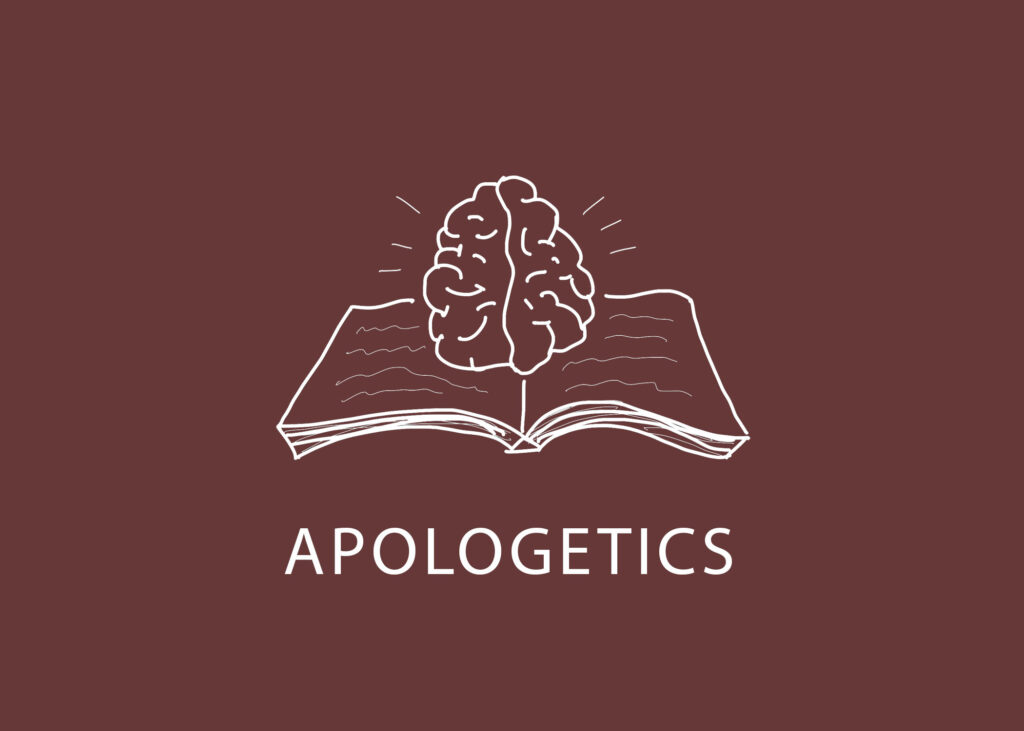
This course introduces the student to Christian apologetics and focuses on the biblical basis for apologetics, biblical apologetic method, presuppositions, worldview, and practically engaging contemporary culture in defending the faith and proclaiming the truth of God. Includes Christian evidences and a review of various apologetic systems. Includes introductory material on epistemology (how we know things), logic, theology, philosophy, the problems of evil, various religions, science, reason, and other topics at the discretion of the instructor. Assignments include quizzes, exams, role-playing discussions, discussion of the required weekly readings, sharing the gospel “in the real world,” engaging with a skeptic, short essays, comparison of beliefs of world religions, and a presentation to the class on a subject in the area of apologetics.
Greek 101 – Biblical Greek I (3 credits)
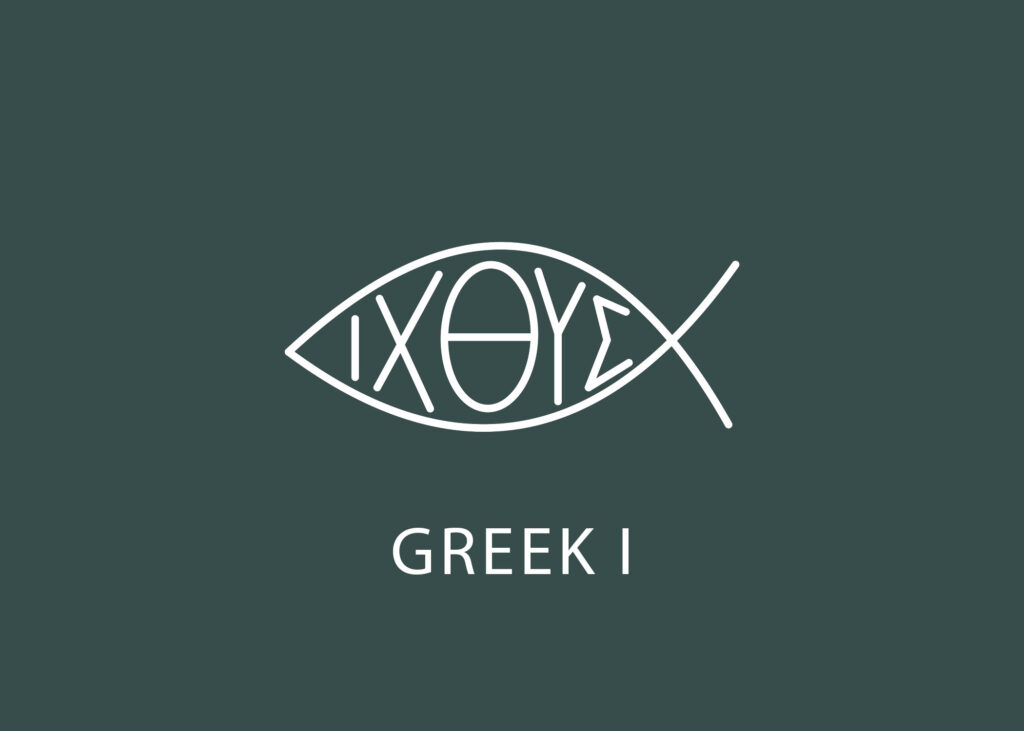
This course is part one of the study of elementary Biblical (Koine) Greek. Our purpose is to enable the student to gain a thorough knowledge of the first half of Bill Mounce’s grammar and to be able to begin using the Greek New Testament and related tools. In this course, the student will learn how to read the Greek New Testament out loud, will learn the most common 200 words in the Greek NT, will be able to recognize word forms based on their suffixes and prefixes, and will be able to use Greek dictionaries, commentaries, and software tools. In addition, some common pitfalls will be pointed out so that the student will avoid common errors in handling the Greek text.
Greek 110 – Biblical Greek II (3 credits)
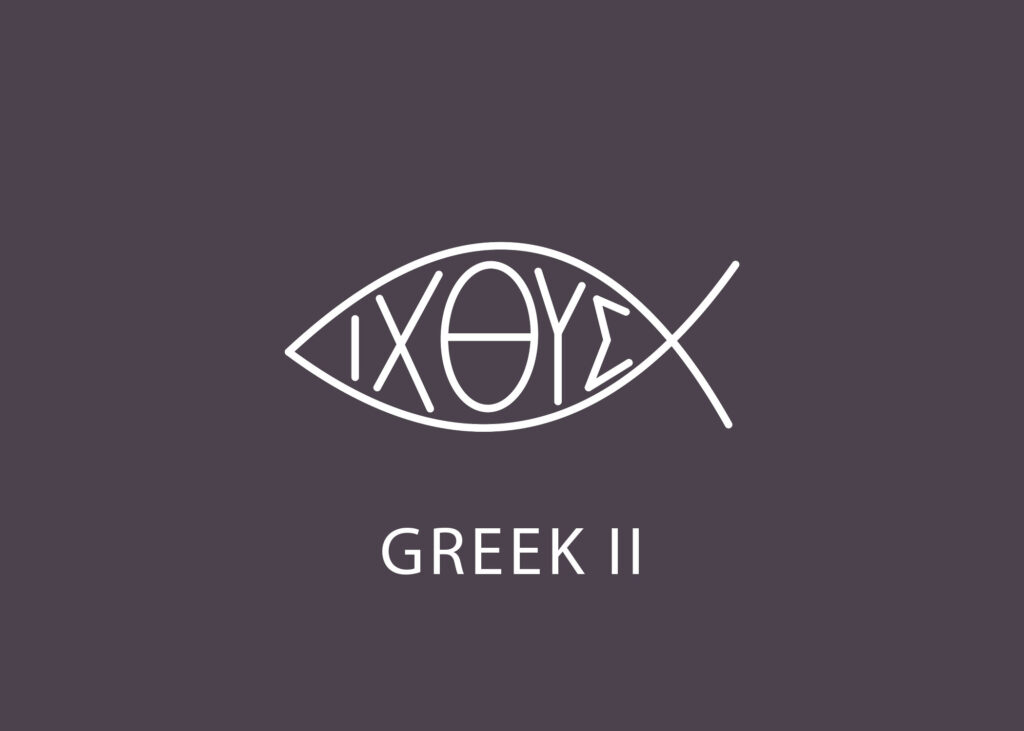
This course is part two of the study of elementary Biblical (Koine) Greek. Our purpose is to enable the student to gain a thorough knowledge of the second half of Bill Mounce’s grammar and to continue learning how to use the Greek New Testament and related tools. In this course, the student will build on the Greek grammar and vocab they learned in Greek I and especially focus on the different verb tenses as well as other important forms of speech. The student will also continue to learn how to use various Greek resources in both personal Bible study and in continued study of Biblical Greek. Continued focus will also be placed on proper handling of the Greek text as well as deriving biblical lessons and truths through the study of the New Testament in its original language.
Hebrew 101 – Introduction to Biblical Hebrew (3 credits)
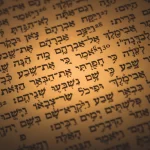
This course is part one of the study of elementary Biblical Hebrew. Our purpose is to enable the student to gain a thorough knowledge of the first half of Pratico and Van Pelt’s grammar, and to able to begin using the Hebrew Bible and related tools. In this course, the student will learn how to read the Hebrew Bible out loud, will begin to learn the most commonly used words in the Hebrew Bible (70 or more occurrences in the Bible), will be able to recognize word forms based on their suffixes and prefixes, and will be able to use Hebrew dictionaries, commentaries, and software tools.
History 240 – Intertestamental History: The World Just Before Jesus (3 credits)
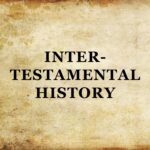
This course surveys the historical, geographical, literary, and cultural context of the Jewish world during the Second Temple period (516 BC – AD 70). It surveys a linear history of the return from exile, the Persian Empire, the Greek Empire including the Ptolomys and Seleucids, the Maccabean Revolt and the Hasmonean dynasty, the Roman Empire, and the Jewish revolt. The course also weaves in many topics such as Jewish religious structure, religious sects, the Qumran community, messianic expectations, and apocryphal literature. Through all of this history, the sovereign hand of God, the connection between the Old and New Testaments, and the hermeneutical context and relevance of each of the topics covered will be emphasized. Students will learn from engaging lectures, assigned readings, and engaging projects. There will also be weekly quizzes, and a midterm and final exam.
History 276 – American Church History (1 Credit)
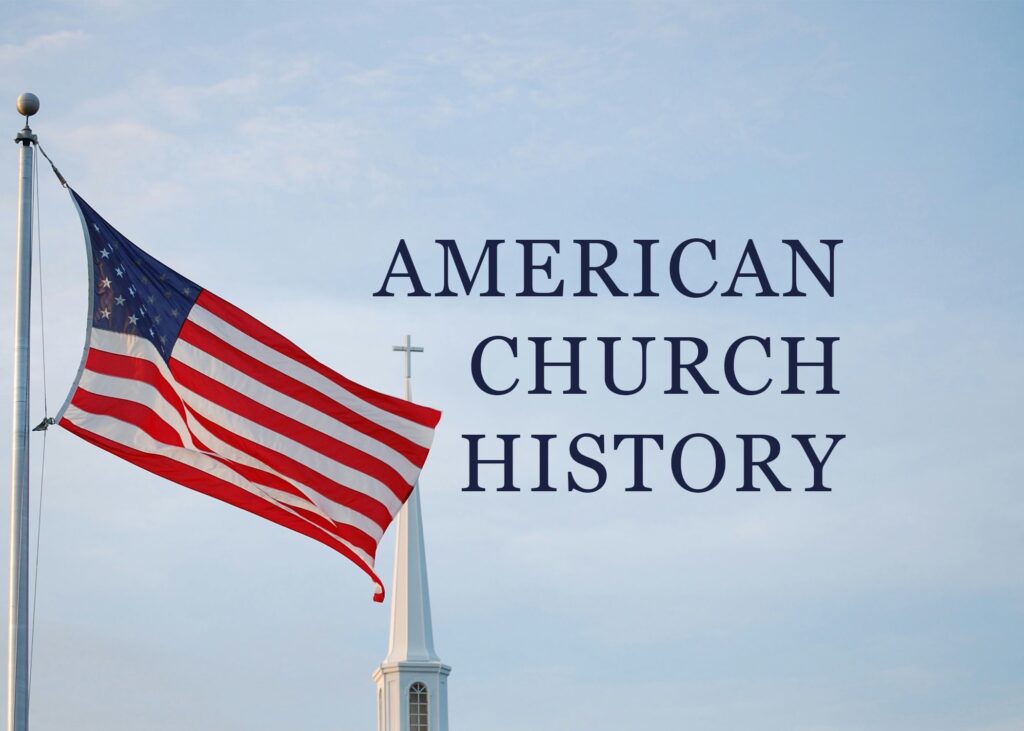
This course provides a survey of the lives of key figures in American church history and the events that shaped both the past and present landscape of Christianity in America. From great awakenings and powerful evangelists to denominational differences and current challenges, the stories of God’s church in this land will inspire and inform our walk with the Lord. Students will learn from weekly lectures, discussion, and prayer for one another and for our nation. Assignments will include weekly quizzes, assigned readings, mini-project assignments, and a final exam.
History 277 – Hymns of the Faith (1 Credit)
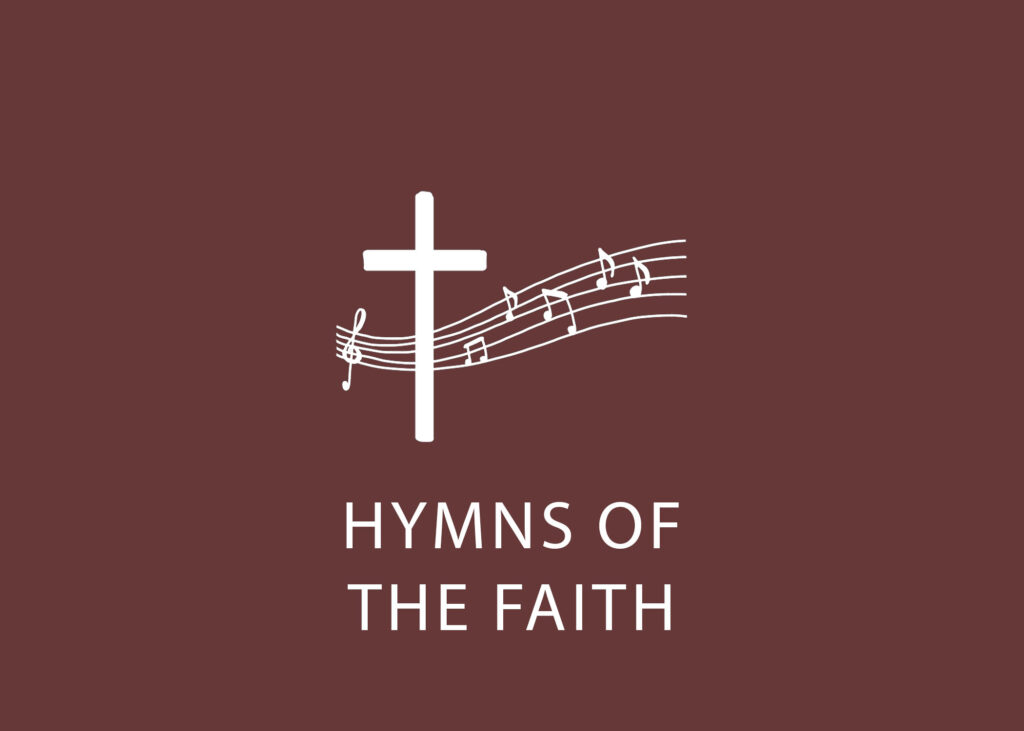
This course offers an engaging and enriching experience in worship through song and study of the great hymns of the faith. Students will learn the words, meaning, and story behind many of the greatest hymns throughout history. This course will also cover the details of hymn writing, allowing students to practice this knowledge by writing their own hymn! Students will engage through weekly hymn singing, memorization of a hymn text, study of hymns and their authors, weekly quizzes, and assignments on the basics of hymns and their use in a worship service.
Bible 210 – Biblical Archaeology (3 credits)
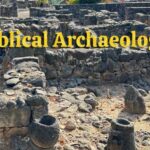
This course is an introduction to the archaeology of Israel and the city of Jerusalem from the time of Abraham (circa 2100 B.C.) to the establishment of the New Testament church. It includes a study of the correlation of archaeological findings from the Biblical lands to the Biblical text. This course will provide descriptions of the tools and techniques that are used at dig sites. The student will explore the process of uncovering artifacts and the insights these artifacts provide into life in Biblical times. Evaluation will be based on weekly quizzes, regular homework research assignments, a midterm reading report, and a final group project.

